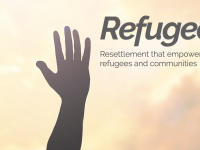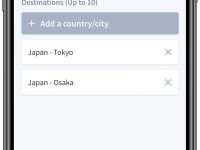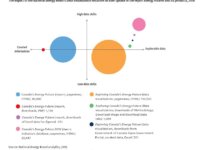Aviation is regulated in a vast set of laws and agreements, on an international and national level and is to be respected by aviators of all sizes; from big national airports, till little children playing with drones. All these different rules and moreover national differences lead to an incredibly complex system to implement. The Belgian Federal Public Service Mobility has developed a system that translates these legal requirements into a single online aircraft registration platform.
Innovation Tag: UX/UI Design
Using AI algorithms and photographic images from school buildings in Nepal and Kyrgyzstan, two international public universities collaborated with a team from the World Bank to develop a technical solution to the long-standing problem of identifying the most vulnerable school building infrastructures in hard-to-reach areas of developing countries. With this solution, an estimated 875 million children and teachers at risk of being injured can be better protected from natural disaster harms.
Mi Taxi, My Cab, part of Mexico City’s App, was created to boost trust in the public cab network by making the service safer. It provides information about the drivers and the cabs' public concessions. Users can rate the trip and activate a panic button connected to the City’s Intelligence Agency, C5.
Negative perceptions of safety among the public lead the Government to grasp the situation faced by drivers and users, particularly women, and thus developed the initial phase of the app,…
Case Study
Nudging Mexico City drivers into feeling co-responsible for everyone’s safety: a new license…
Taking a course and a comprehensive driving test has not been a mandatory requirement to issue a driver's license in Mexico City and implementing such a system is not simple. The City is building institutional capabilities to effectively implement mandatory courses and tests to improve road safety. Meanwhile, SEMOVI has modified the issuing license form to nudge applicants into feeling co-responsible for road safety and refraining from driving if they deem themselves incapable of doing it…
Case Study
Fotocívicas: Changing Fines for Community Work and Educational Penalties to Improve Drivers’…
Fotocívicas is a behaviourally inspired traffic control system that relies on educational and civic fines aiming to transform drivers’ behaviour by reducing recidivism and licensing effect among offenders. It sets out to change the previous system, which was based on monetary fines with cameras placed where drivers were more prone to speed, not where more fatalities happened, without improving behaviours or road safety
New Zealand has developed the Emergency Caller Location Information (ECLI) Service. The Service enables Public Safety Organisations (PSOs) to receive automatically generated geographical information about the location of a caller when an emergency call is connected to a mobile cellular network, from any mobile device. ECLI saves lives by decreasing the time taken to verify location and reduce the average dispatch time to incidents, with controls in place to protect callers’ personal…
While tens of thousands of refugees are permanently resettled to host countries every year, governments lack the capacity to know which communities to place which refugees.
Annie™ MOORE, used by the resettlement agency HIAS, deploys advanced analytics to recommend communities that are most likely to maximize refugees’ odds of being employed.
Annie™ boosts employment chances by at least 30% over manual placement and ensures that the needs of refugees and community capacities are both…
Parents Gateway is a one-stop, centrally coordinated app streamlining engagement between parents and schools, capable of direct mass communication of time-sensitive messages of high level of importance to all parents nationwide. With curriculum time saved, teachers previously burdened with onerous administrative work are free to focus on core teaching and to better meet students’ needs. Parents stressed by disparate admin processes for children in different schools can now manage all in one…
In 2016 the NEB launched the Data Visualization Initiative to face the challenge of producing usable and useful data to go beyond using new technologies to deliver better service to citizens. It created multiple products from the same information to expand public participation in the energy dialogue and enable evidence-based decision-making. These products include interactive data visualizations and other materials, such as high school lesson plans, as a new way to engage experts and nonexperts.
Make.org est une plateforme européenne de mobilisation citoyenne autour d’actions de transformation de la société. Dans ce cadre, Make.org développe une solution digitale de consultation massive, totalement inédite, capable de faire participer autour d’une question simple d’intérêt général, plusieurs milliers de citoyens, dans plusieurs langues, et de restituer les résultats de cette consultation en ligne, de manière quasi instantanée. Cette solution est complétée des…



